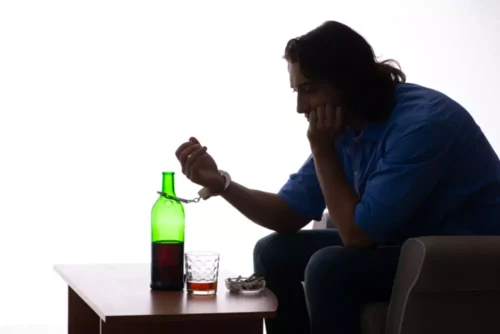Does Alcohol Cause Hot Flashes?

That’s why we prioritize mental health through a variety of counseling and therapeutic services. However, if they persist, recur, or happen alongside other symptoms, help may be necessary. People may not realize that because of this, they are at risk of hypothermia in cold weather.
- One potential explanation is that alcohol can cause vasodilation, leading to an increase in body temperature and triggering hot flashes.
- Some individuals may be more sensitive to the effects of alcohol, leading to a heightened reaction that manifests as hot flushes.
- In cold weather, individuals may be at risk of hypothermia as their bodies lose heat through the skin.
- Factors such as body composition, metabolism, and genetic predisposition can influence how the body reacts to alcohol and its potential to trigger hot flashes.
- When alcohol is consumed, it can cause blood vessels near the skin’s surface to dilate, leading to a sensation of warmth.
The Role of Healthy Relationships in Supporting Sobriety
This fluctuation in body temperature may trigger hot flashes or intensify existing ones, especially in individuals who are already prone to experiencing them. It may affect the production and regulation of estrogen, exacerbating the hormonal fluctuations that contribute to hot flashes. Additionally, alcohol can interfere with the function of the hypothalamus, a part of the brain that plays a crucial role in temperature regulation and hormonal control. Alcohol consumption can cause your feet to become hot, especially when you drink large amounts.
Alcohol Withdrawal and Night Sweats

These include stress, anxiety, certain medications, spicy foods, caffeine, and alcohol. It’s important to note that the relationship between alcohol consumption and hot flashes is complex, and the impact may vary from person to person. hot flash after drinking alcohol Based on your specific situation, your healthcare provider may suggest a variety of approaches.
Alcohol and Hot Flashes: What’s the Connection?
Besides this, if you’re drinking while seated in a crowded, poorly ventilated place, you might also feel overheated. The Reframe app equips you with the knowledge and skills you need to not only survive drinking less, but to thrive while you navigate the journey. Our daily research-backed readings teach you the neuroscience of alcohol, and our in-app Toolkit provides the resources and activities you need to navigate each challenge.
The Link Between Alcohol and Other Menopausal Symptoms

Drinking fluids, especially water, can help regulate body temperature and reduce the severity of symptoms when they occur. It may also be beneficial to limit spicy, caffeine-laden, and alcoholic beverages, replacing them with herbal teas or other soothing options to create a more stable internal environment. The compounds in spicy foods, such as capsaicin, can increase body temperature and induce sweating, making hot flashes feel more intense. Many women report that consuming spicy dishes can lead to immediate reactions, resulting in an uncomfortable experience that may last for some time.
Foods That Help with Hot Flashes
Understanding the relationship between alcohol and hot flashes can empower individuals to make informed choices regarding their alcohol consumption and manage their symptoms effectively. By adopting a holistic approach to health and making lifestyle adjustments, individuals can navigate the challenges of hot flashes and maintain their overall well-being. When consumed, alcohol has the ability to affect the body’s temperature regulation mechanisms.
Night Sweats and Alcohol: Understanding the Link
There is a physiological explanation for feeling sweaty after drinking alcohol. Alcohol causes a sensation of feeling hot, which leads the blood vessels in the skin to dilate. One study evaluated the causes of hot flashes and night sweats and marijuana addiction found that daily alcohol consumption was linked to nighttime sweating. In women, they can be a symptom of hormonal changes that happen during perimenopause or menopause. Women may also experience night sweats prior to their period and during pregnancy, because of fluctuating hormone levels.
Feeling unwell after drinking is common, and hangover symptoms are often your body’s way of telling you to lay off the drinking and take it slow so you can recover from alcohol-related side effects. Night sweats and hot flashes can also occur after drinking, and it’s important to stay alert for signs of alcohol poisoning. This article covers the possible causes of alcohol-related night sweats, including how to manage night sweats after drinking. We also look at the first signs of liver damage from alcohol and when to contact a doctor.

While there are several potential triggers for hot flashes, it’s important to explore whether alcohol consumption plays a role in their occurrence. While the initial warming sensation may seem appealing, it is important to note that the vasodilatory effect of alcohol can cause a subsequent drop in core body temperature. This drop triggers a physiological response to maintain homeostasis, leading to an increase in heart rate and blood pressure. This reaction can manifest as a hot flash, particularly in individuals who are already predisposed to experiencing them. One of the key ways alcohol influences body temperature is through its effect on blood vessels. Alcohol has a vasodilatory effect, meaning it causes the blood vessels to expand or widen.
How Long Does Alcohol Stay in Urine: Factors Affecting Detection Time
Alcohol consumption during menopause can have a complex impact on symptoms experienced by women. While about 80% of women may experience hot flashes and night sweats during this time, alcohol can worsen these vasomotor symptoms, making them more disruptive during the day and at night. Dr. Juliana Kling from the Mayo Clinic points out that alcohol can increase a woman’s risk for serious health conditions, including heart disease and osteoporosis.
Adresa
Hotel Korsal
Šetalište Frana Kršinića 80
20260 Korčula, Hrvatska-

-

Kontakt
Telefon: +385 20 715 722
E-mail: info@hotel-korsal.com

